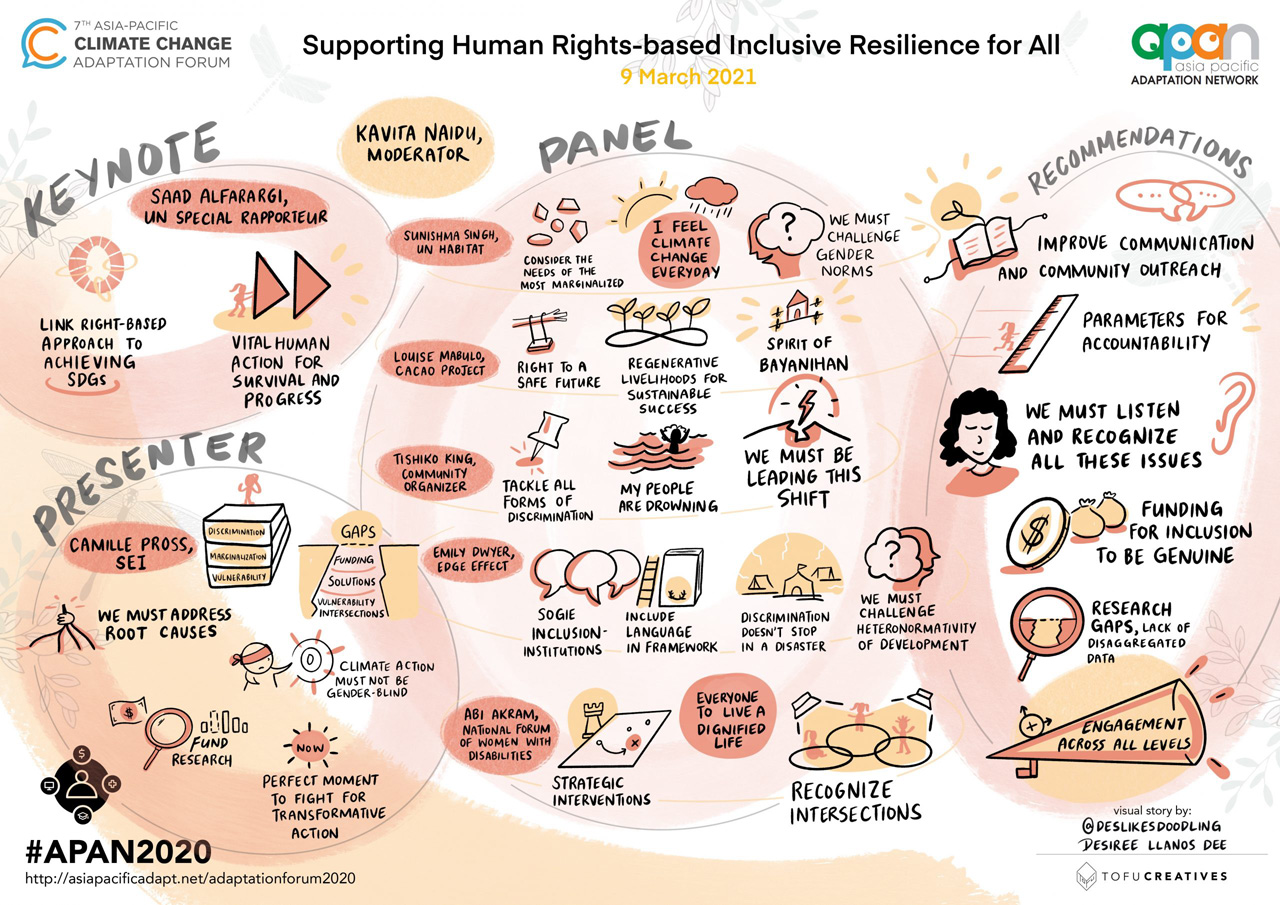7th Asia-Pacific Climate Change Adaptation Forum 2021
8-12 March 2021
Online

As a supporting partner of the Asia Pacific Adaptation Network (APAN), the RRC.AP contributed to the 7th Asia-Pacific Climate Change Adaptation Forum held virtually between 8 – 12 March 2021, organizing two virtual sessions, virtual exhibition booths (showcasing activities and services linked to climate change adaptation), and communicating within its network about the forum.
The RRC.AP co-organized its first 90-minute session on "Collaborating Efforts to Strengthening Cities Resilience to Climate and Disaster Risks" in collaboration with Institute for Global Environmental Strategies (IGES) on March 9, 2021. The session focused on how to integrate Disaster Risk Resilience into national development plans, how can academia, local government, and other stakeholders engage in improving the resilience of the cities leading the conversation to further discuss the challenges faced by cities in assessing disaster risks, developing, and implementing cities resilient action plans and need for further enhancement for scalability. The session highlighted three main points for building cities resilience to climate change and disaster risks: (1) the need for inclusive and multisectoral approach (2) collaboration efforts focusing on resource and finance mobilization, knowledge building and exchange, and capacity development via multi-stakeholder engagement from the local to regional levels and (3) importance of educational partnerships with city stakeholders in informing planning processes and bridging gaps to address the needs of the most vulnerable groups based on the experiences from Kathmandu (Nepal) and Santa Rosa (Philippines).
Similarly, on March 12, 2021, RRC.AP organized its second session on "Climate Finance in Flux: how can finance flows steer resilience pathways that truly leave no one behind?" The session dives into the discussion to talk about the role of climate finance to increase and accelerate inclusive resilience and enabling conditions to increase inclusion in adaptation practice. The session emphasized that for inclusive resilience investment and finance needs to be as diverse as the need and groups that it is aiming to reach; both funding and local implementing entities should be informed on how resources should be shaped and mobilized for inclusion; capacity building, flexibility, and collaboration with a wide range of stakeholders including marginalized voices, private sector, academia, and others is key to ensure that initiatives are taken seriously and the costs and time requirements for inclusive participation need to be acknowledged while noting that non-inclusiveness limits resilience outcomes.
